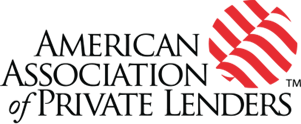
Private Money Lending vs. Institutional Lending: Weighing Your Options
November 07, 2024
The world of lending has evolved, opening new doors for borrowers seeking alternatives to traditional banks.
Private lenders are stepping into the space that institutions have dominated for decades, offering flexibility and speed that big banks often can't match.
Whether you're a real estate investor or a business owner looking for funding, understanding the pros and cons of private versus institutional lending is crucial for making the right decision.
Today, we'll break down the key differences, weighing the benefits and drawbacks of both options, so you can choose the one that aligns with your goals and circumstances.
The Growing Market for Private Lending
As of 2023, the global private credit market has reached a staggering $2.1 trillion, and it's projected to grow to $2.8 trillion by 2028.
The shift toward private lending is no accident. Institutional lending, while stable and regulated, often imposes stringent requirements that many borrowers can't meet.
This is where private lenders, such as Crowd Lending, Inc., come into play, offering tailored solutions that are fast and flexible.
On the flip side, traditional bank loans are shrinking. In 2023, they accounted for only 35% of corporate borrowing, down from 44% in 2020.
This trend highlights the growing influence of private credit in the lending space.
Private Lending: Fast, Flexible, but Risky
When speed and adaptability are top priorities, private lending is hard to beat.
Private lenders typically base their loan decisions on the value of an asset, such as a property, and the proposed exit strategy.
This approach makes it easier for borrowers to secure funding quickly, especially for time-sensitive projects like real estate investments.
For more information on how private lending works, you can explore Crowd Lending's FAQ.
Approval Process and Flexibility
- Private Lending: Private lenders can approve loans in a matter of days, focusing more on collateral than the borrower's credit score or financial history. If you're a real estate investor needing to seize an opportunity fast, this flexibility can be a game-changer.
- Institutional Lending: In contrast, traditional lenders like banks have a lengthy approval process that can stretch out over weeks or even months. They require extensive documentation, a solid credit score, and a proven financial track record, which can be roadblocks for those with less-than-perfect credit or urgent needs.
For more insight into how private lending approvals work, check out Crowd Lending's process.
Chart: Speed Comparison - Private vs. Institutional Lending Approval Times
Lending Type | Average Approval Time | Main Criteria |
Private Lenders | 3-7 Days | Collateral, Exit Strategy |
Banks | 2-6 Weeks | Credit Score, Financial History |
Institutional Lending: Stability Comes at a Price
Institutional loans come with lower interest rates and longer repayment terms, making them a more affordable option for borrowers who need stability and time to repay.
However, banks are much stricter when it comes to borrower qualifications, making these loans less accessible for riskier ventures or those who need capital quickly.
Loan Characteristics and Interest Rates
- Private Lending: Expect higher interest rates and shorter loan terms. Most private loans average $80 million in size and often come with interest-only repayment structures. While these terms make private loans ideal for short-term projects, they can become costly if you're unable to pay off the loan quickly.
- Institutional Lending: Banks, on the other hand, offer lower interest rates, which can make loans more affordable in the long run. The trade-off? Longer approval times and stricter requirements. These loans are better suited for low-risk, long-term projects where predictability is key.
For a better understanding of how private loans are structured, take a look at Crowd Lending's loan options.
Availability: Where Are These Loans Most Useful?
When it comes to loan availability, private lenders and institutional lenders dominate different segments of the market.
Private loans are increasingly popular in sectors like real estate and leveraged buyouts, where flexibility and speed are crucial.
Loan Availability and Market Focus
- Private Lending: With private loans dominating niche markets such as real estate, private lenders are often the go-to choice for those seeking fast capital to close a deal. For instance, Crowd Lending, Inc. specializes in loans for real estate investors in the Northeast U.S., offering quick approval and large loan sizes (up to $45 million).
- Institutional Lending: Traditional banks are better suited for more stable, long-term projects. If you don't need immediate funding and prioritize predictable terms and lower risk, institutional lending is the way to go.
The Role of Regulation: A Double-Edged Sword
Private lenders operate with less regulation, which allows them to move faster and offer more creative loan structures.
However, this lack of oversight introduces certain risks.
On the other hand, institutional loans are heavily regulated, providing an additional layer of protection for borrowers, but slowing down the process.
Regulatory Oversight and Risk
- Private Lending: The freedom that comes with fewer regulations can be a double-edged sword. The rapid growth of private credit has raised concerns about systemic risks due to the opacity of the market. Borrowers must be cautious and ensure that loan terms are clearly defined.
- Institutional Lending: Banks are subject to strict regulations, offering more protection for borrowers. While this ensures greater transparency and accountability, it also limits the types of loans they can offer and how quickly they can process applications.
For the latest trends and insights on private lending, visit Crowd Lending's market insights.
Table: Private vs. Institutional Lending: Risk & Regulation
Lending Type | Regulatory Oversight | Key Risks |
Private Lenders | Minimal | Higher Interest Rates, Shorter Terms |
Banks | Highly Regulated | Longer Processing, Limited Flexibility |
Performance and Risk: High Returns, High Stakes
Private lending has outperformed traditional high-yield bonds and leveraged loans over the last 17 years, making it an attractive option for those willing to take on a higher level of risk.
However, borrowers in the private lending market face significant challenges, with one-third of them paying more in interest than they are currently earning.
Performance and Risk Factors
- Private Lending: Higher returns come with greater risks. Private credit has consistently delivered better performance compared to traditional lending avenues, but this also means that many borrowers are on the hook for high interest payments.
- Institutional Lending: While banks offer more security, their loans tend to deliver lower returns. Borrowers looking for safety and predictability will find more comfort in institutional loans, but they may miss out on the opportunity for higher profits.
To stay up-to-date on market performance, check out Crowd Lending's latest updates.
Choosing the Right Option: Weighing Your Priorities
So, which type of lending is right for you? It depends on your priorities.
Here's a quick breakdown:
Private Lending: Ideal for Real Estate Investors
- Speed: Private lenders offer fast approvals, sometimes within days.
- Flexibility: Loan terms are more negotiable.
- Drawbacks: Higher interest rates and shorter terms mean you'll need to repay quickly.
Institutional Lending: Best for Low-Risk, Long-Term Projects
- Stability: Lower interest rates and longer terms make this a safer option for large, long-term projects.
- Security: Heavily regulated, providing more protection for borrowers.
- Drawbacks: The slow approval process can be frustrating, and it's harder to qualify if you have a less-than-perfect financial history.
Final Thoughts: Timing is Everything
Whether you choose private or institutional lending comes down to timing and your financial situation.
If you're a real estate investor or developer looking for fast, flexible capital, private lending might be the better fit. Just be prepared for the higher costs and risks.
For those with long-term projects and a preference for lower risk, institutional lending offers stability and lower interest rates, though at the cost of speed.
In today's market, both options have their place-but knowing when to use each one will give you a strategic advantage.
Additional Resources
If you're looking to dive deeper into the topics covered in this article, here are some valuable resources that provide further insights into the world of private and institutional lending:
- Alternative Lending's Effect on Banks - A comprehensive analysis from Deloitte on how alternative lending is reshaping the financial services industry.
- The Growth of Direct Lending - BlackRock provides insights into the rapid expansion of direct lending and its impact on corporate financing.
- An Overview of the Current State of the Private Lending Industry - MoneyThumb explores the current trends and challenges in private lending.
- Private Credit Market: Systemic Risks and Growth Potential - The IMF delves into the fast-growing private credit market and its potential risks.
- Private Credit Outlook and Considerations - Morgan Stanley outlines key factors to consider when navigating the private credit market.
- Private Credit Growth and Monetary Policy Transmission - The Federal Reserve examines the relationship between private credit growth and monetary policy.
- Private Lenders vs. Banks: A Comparison - Bankrate offers a clear comparison of the benefits and drawbacks of private lenders versus traditional banks.
- Private Credit in the US: Trends and Statistics - Statista provides a detailed overview of private credit trends and key statistics within the U.S. market.
Contact Us for More Information
If you're considering private lending for your next real estate investment or business project, Crowd Lending, Inc. is here to help.
Our team specializes in providing fast, flexible financing solutions tailored to your unique needs.
Reach out to us today through our Contact Page or learn more about our services by visiting our About Us section.
Let us help you navigate the complexities of private lending and find the best solution for your project.


